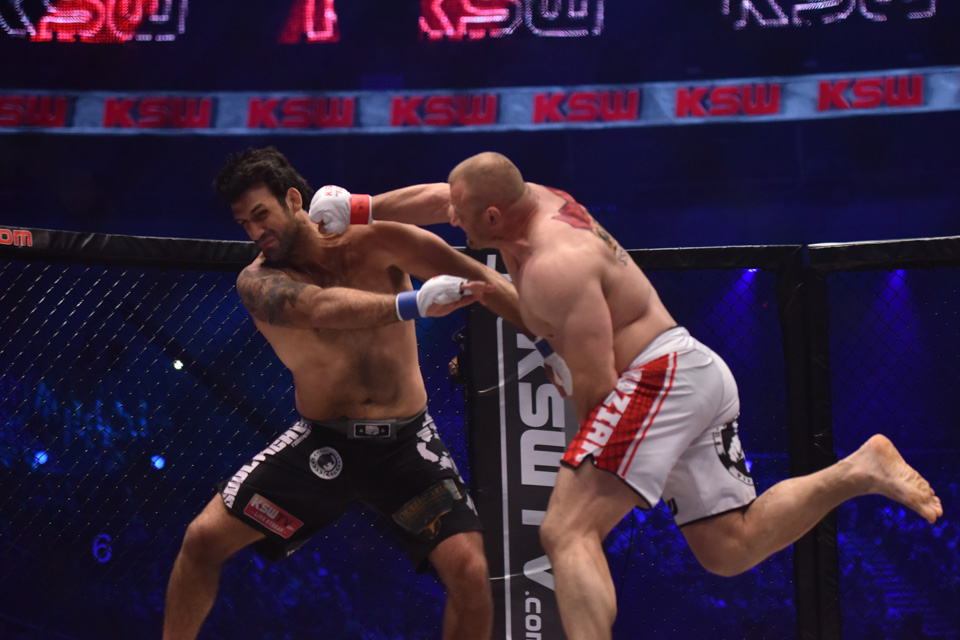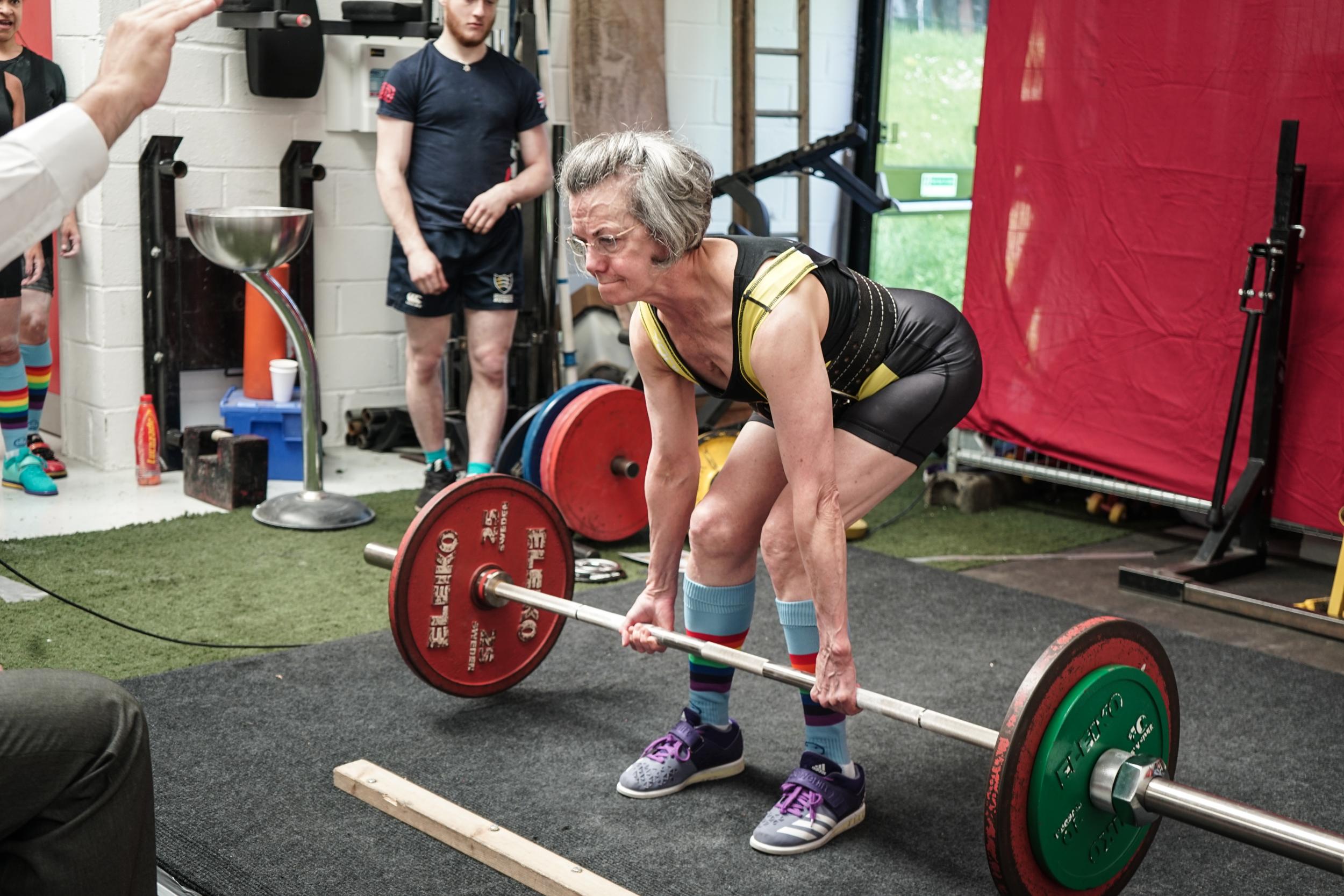My most
recent post of “If It Feels Good, Stop” inspired a lot of conversation and, in
it, I found an interesting element of “strong” being discussed there:
specifically the nature of being strong vs doing strong things. Despite how often I explain it, many people
still struggle to understand why I’ve lifted for so long if I hate it, and they
go through all the normal (and incorrect) assumptions that I must be a
masochist, that I’m exaggerating or flat out lying, that I just haven’t found the
exercise that I like, or that I’m somehow super-duper disciplined. The truth remains much simpler: I like BEING
big and strong, and lifting weights is something I have to DO in order to BE
strong. But in turn, one must understand
that these ARE two separate concepts: a concept of being and a concept of
doing. One must be able to make the
clear and distinct separation between the two concepts in order to fully
realize just WHAT, exactly, it is that is their goal in training.

That sums it up pretty nicely
This
fundamentally requires one to accept the reality that one can exist independent
of the actions they perform, and that their actions do not define “them”. The notion of action defining a person is
very western, and can trace its origins to the ancient Greeks, with impact being
felt today. Think about whenever someone
asks you to tell them about yourself: you most likely start with what you do
for a profession (or, absent a profession, where you are currently a student
at). You define “you” based off the
things you do (and typically, off the things you do to earn money FIRST,
followed by the things you do for leisure second, which is more western
influence). However, our more eastern
inclined brethren may be tempted to instead answer with who their family is (I
am so-and-so’s child, and they come from X).
And think really about the answer to those questions: one is very much
about what one DOES, while the other, truly, is about what someone IS.
That said, I
now have need to address one of my previous posts to “Internet Powerlifters”,
wherein I made the claim that, if one does not powerlift, one is not a
powerlifter. Does that contradict what
we’re discussing today? No, because
“powerlifter” is NOT a state of being: it’s a classification of one who
acts. Being strong is HELPFUL for bring
a powerlifter, but not at all necessary (because we have not specified
“good/successful powerlifter” here: simply powerlifter). Hence, in telling someone “you are not a
powerlifter” because they do not powerlift, we are not denying that they are
strong, we are not denying that they dedicate their training to improving their
squat, bench and deadlift, we are not denying that they do lots of work in low
rep ranges: we are simply saying that they have not done the action necessary
for one to be a specific thing.

It's not about how much you lift or how you train: it's about actually getting on the platform
Which, in
turn, brings us all the way around to BEING big and strong. It is true that one must do the things that
big and strong people DO in order to BE the thing that big and strong people
are (in much the same way one must powerlift to be a powerlifter), but what is
ALSO true is that one is BEING big and strong even when one is not DOING the
things necessary to become big and strong.
One is not big and strong ONLY when one is exercising, but, in fact,
they are that way during all hours. Big
especially so, as that remains persistent insomuch as one eats to support it,
but strong one would argue even moreso OUTSIDE of training, as training tends
to tax one’s available strength and reduce their ability to be as strong as
possible in that exact moment in time.
One actually tends to be stronger OUTSIDE of the activities of becoming
stronger vs when they are doing the very things that are required to become big
and strong. In understanding this, it
becomes apparent that the act of becoming big and strong is distinctly
separated from BEING big and strong, and the two can exist as independent
concepts despite a codependent relationship.
And I love
BEING big and strong, so much so that I’m willing to DO the things that make me
big and strong even if I hate them.
Primarily because the trade-off is borderline ridiculous. I only have to “suffer” for 60-90 minutes 4-5
times a week in order to spend the REST of that day loving what I am. Think of how many people have that completely
backwards. Think of how many people
absolutely resent what they ARE, so they turn to DO something to try to feel
better for only an incredibly fleeting moment.
They indulge in yummy food, or alcohol and drugs, or self-gratification,
or just ANYTHING to attempt to take their minds off of just how miserable they
ARE. They mistakenly believe that, by
DOING, they can alleviate the pain of what they are BEING, but, in truth, what
they are being IS so miserable BECAUSE they refuse to dedicate 60-90 minutes a
few times a week toward some manner of self-improvement. And yet again: that doesn’t have to be
lifting. For me it is, because BEING big
and strong is what I love being, but it could just as easily be about being
smarter, an accomplished chef, more spiritual, more assertive, etc etc. That time spent doing that will be
unenjoyable, no doubt, but it pays a ridiculous exponential interest, wherein,
what little time is invested in suffering results in near constant and persistent
joy: the joy of BEING.

See Steve gets it
To take this
rant even further, one inevitably begs the question “but how can one BE strong
without the demonstration of said strength, at which point one strains,
experiences discomfort, and therefore does not experience joy?” The fact of the matter is that strong IS a
state of being that exists independent of the demonstration of it. As someone that is strong, being strong is
possessing an immense amount of physical confidence, sometimes to the point of
tragedy. There is RARELY an instance
wherein I encounter something where brute force is the solution and I am unable
to supply it, and many times instances where one does not even CONSIDER brute
force as a solution to a problem yet I am able to “solve” it employing that
manner. I am never limited due to a lack
of strength, and though I may experience discomfort in the employment of said
strength, I experience joy in the knowing that I had the strength to
employ. I’ve moved my house multiple
times over the year and never had to hire a moving company to assist me. This included putting a reverse hyper on my
back and walking it up the ramp of a moving truck, ducking under my garage door
on the way up and essentially doing inclined lunges until I could get
clearance. It was one of the most
physically miserable experiences of my life, but BEING strong enough that I
could do it was absolutely satisfying. I
love being strong enough to know that the only thing that will ever stop me
from carrying my kid is when THEY’RE no longer comfortable with it. I love that when something says “team lift”
on it, I know that it doesn’t apply to me.
Being big
and strong is, quite simply, awesome, and it’s awesome enough that it’s
completely worth doing all the things necessary in order to be that way.
Ah, yes, the days of the not needing a team lift, or a second person to pull heavy pallets, or just throwing a pallet overhead or across my back because it was a good way to save time and just do other stuff with my day, and then get in trouble because I am going to "break my back", because some other guy did that once.
ReplyDeleteI really enjoy your more philosophical pieces.
ReplyDeleteSomething perhaps partially related is an idea discussed in mountaineering and similar sports: the three types of fun. Type 1 is something that is fun while you're doing it. Type 2 is something that is fun in retrospect. Type 3 is something that isn't even fun in retrospect. Type 2 is the activity that is miserable when you're doing it but then when you're done you think "that wasn't so bad".